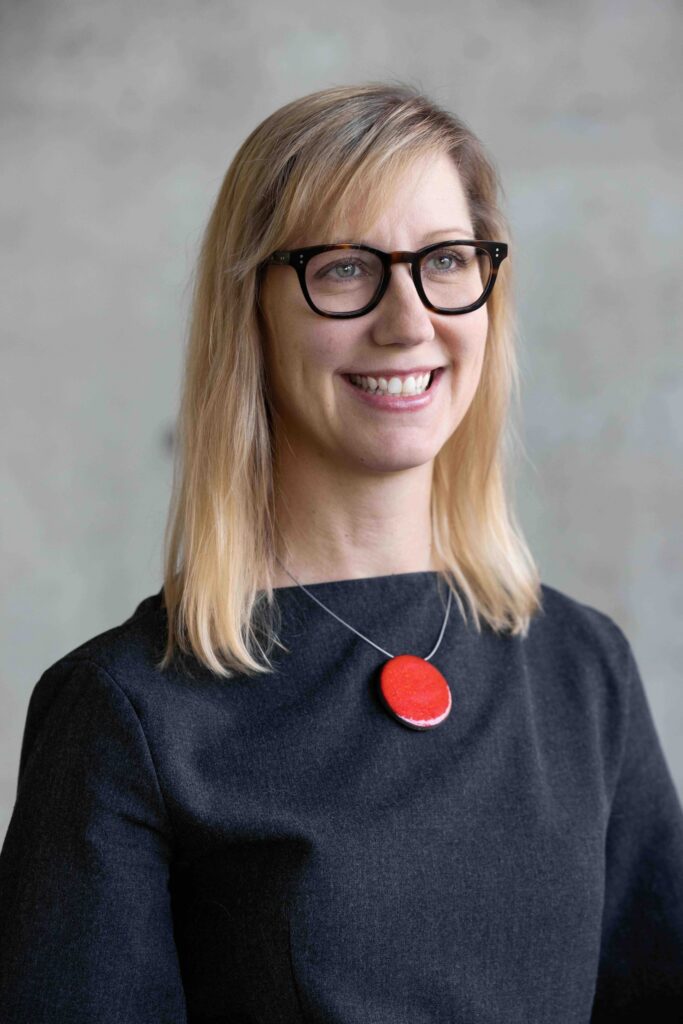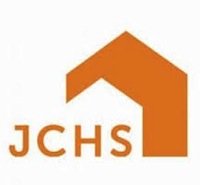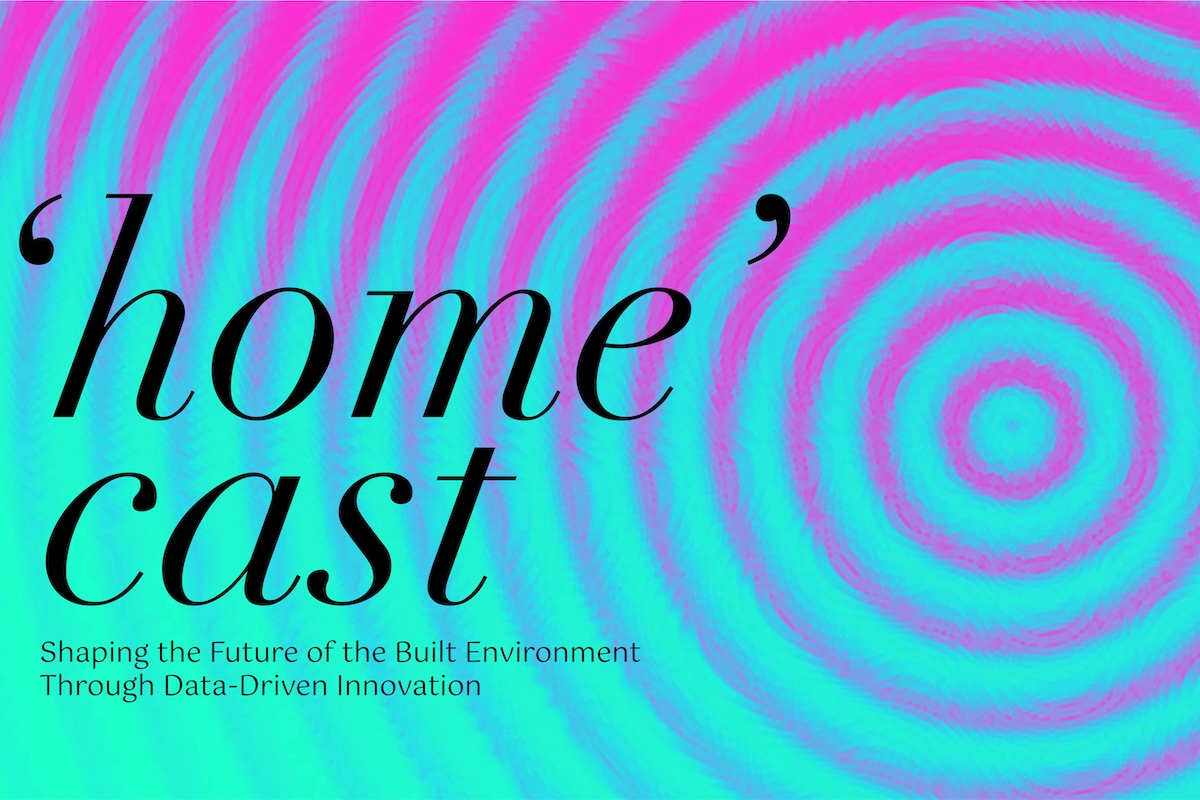About This Event
In a constantly evolving urban landscape, the future of housing is increasingly intertwined with the complexities of a rapidly advancing technological sphere. The ‘HOME’CAST conference explores how AI, predictive analytics, and adaptive climate modeling are converging to shape housing systems that are both resilient and responsive to change. How do intermittent renewable energy sources like wind and solar complicate energy supply and building design? Can emerging technologies unravel these complexities when we can’t reliably forecast how much sun we’ll get or when the wind will blow? On the demand side, how do smart buildings, zero-energy homes, and community-scale energy systems adapt in real time to precarious energy inputs?
‘HOME’CAST brings together a curated group of experts—industry leaders, scholars, and practitioners—for a series of analytical panel discussions. These will highlight innovations in fault detection, AI-driven energy modeling, and climate-adaptive infrastructure, alongside broader conversations about urban planning, equity, design, and predictive governance.
From sustainability and climate resilience to data-driven, technology-enabled approaches and intelligent infrastructure, the conference offers multidisciplinary perspectives from design, data science, policy, and urban development—envisioning new forms of shelter in a climate-constrained world.
For any questions and concerns, please contact organizers Lyna and Gulai Shen.
CONFERENCE SCHEDULE
With James Robert Scott, Suleiman Alhadidi, and Sebastian Olascoaga
With Giorgia Chinazzo, Nan (Nancy) Ma, and Judah Goldfeder
With Juan Palacios and Thomas Sanchez
With Yiwei (Lucy) Lyu, Sang Won Kang, and Lyna.
Speakers
Keynote Address
10:00–10:45 a.m.

Holly Samuelson (DDes ’13) is an Associate Professor in the Building Technology Program in Architecture at the Massachusetts Institute of Technology. Her work focuses on how building design impacts health and carbon emissions.
At MIT, she directs the Livable Spaces Lab, an interdisciplinary research group advancing healthy, energy-efficient buildings for people and the planet. The lab combines computational and experimental methods to tackle urgent challenges, including heat vulnerability, thermal resilience, indoor air quality, carbon emissions, and the future of building design in a shifting energy landscape.
Before joining MIT, Dr. Samuelson practiced architecture, consulted for the building industry, and taught at Harvard University (2012-2025). She has authored more than 50 peer-reviewed publications, including the Best Paper Award from Energy and Buildings. She has been featured by media outlets such as the BBC, Wall Street Journal, and Washington Post, highlighting architecture’s role in promoting public health and addressing climate change.
Panel 1
Urban Intelligence: Rethinking Cities Through Data, Design, and Real Estate Innovation
11:00 a.m.–12:15 p.m.
PANEL 1 speakers

James Robert Scott is the Director of Industry and Professional Programs, lecturer, and research scientist at the Real Estate Technology Hub at MIT’s Center for Real Estate. His work focuses on real estate automation and technology, especially through the Real Estate Technology Initiative, an interdisciplinary research platform exploring emerging innovations and their industry impacts. He collaborates with Proptech stakeholders to identify technologies that enhance energy efficiency, competitiveness, and user experience in buildings.

Dr. Suleiman Alhadidi is the founder of AREAL (Resilient, Environmental, and Adaptive Living), a built environment and real estate innovation firm dedicated to transforming cities through data, design, and emerging technologies. Dr. Alhadidi’s work focuses on data-driven cities, adaptive reuse, robotic building systems and economic resilience—bridging architecture, urban planning, advanced technologies, and strategic real estate investment. He holds a doctorate from Harvard University, where his dissertation, Real-time Architecture, introduced a novel method for evaluating workplace performance and spatial optimization. He previously led research at MIT’s City Science Group, working on CityHome 02 and the Changing Places research projects to explore responsive urban housing and micro-unit innovation. He is a registered architect in both the United States and Australia. His design and planning work includes collaborations with firms such as HASSELL, BVN, and Coop Himmelblau.

Sebastian Olascoaga is an economist and lecturer at MIT’s Department of Urban Studies and Planning. He also serves as director of research and evaluation for the City of Boston. His work applies field experiments, causal inference, and machine learning to study how households, markets, and governments respond to shocks, with a focus on housing, risk, and health. His research has explored how environmental risks, policy interventions, and economic shocks influence housing markets, health outcomes, and urban inequality, with findings covered by outlets including Bloomberg, NPR Marketplace, Forbes, The Weather Channel, MIT News, and The Washington Post. In Boston, he leads the City’s research and evaluation strategy. He holds a Ph.D. in Urban Economics and Policy from MIT and an M.Sc. in Applied Economics from the Paris School of Economics.
Panel 2
Building Intelligence: Control and Optimize Human-Centered Built Environment
1:15–2:30 p.m.
PANEL 2 speakers

Giorgia Chinazzo is an Assistant Professor in the Department of Civil and Environmental Engineering at Northwestern University, where she also serves as Director of the Architectural Engineering and Design Program. She leads the Controlled Adaptive and Responsive Environments (CARE) Laboratory, which investigates how the built environment can be designed and operated to sense, adapt, and respond to human needs, enhancing occupants’ quality of life while minimizing environmental impact. Her interdisciplinary research integrates engineering, architecture, data science, and health and social sciences to examine how buildings influence human health, well-being, and behavior, and how these human responses in turn shape building performance. Dr. Chinazzo is particularly focused on developing knowledge and technologies to support the next generation of intelligent, responsive buildings. Trained as an Architectural Engineer, she earned her Ph.D. in Building Science from the Swiss Federal Institute of Technology (EPFL).

Nan “Nancy” Ma, PhD, Assoc. AIA, is an Assistant Professor of Architectural Engineering at Worcester Polytechnic Institute (WPI) and the founding director of the Laboratory for Healthy, Environmental, and Resilient Buildings (HERB-Lab). Her teaching and research focus on fostering a convergence of disciplines (e.g., data science, health science, social science) to achieve two critical goals: creating a smart, healthy, human-centered built infrastructure, and improving environmental resilience. Dr. Ma’s work leverages information technologies, AI, sensors, networks, and advanced computational tools to address pressing challenges in social and environmental sustainability. She has coauthored more than 30 peer-reviewed scientific papers, including one recognized with a Best Paper Award by Building and Environment. She serves on the early career editorial board of Indoor Environments, is a member of the research committee of IBPSA-USA, and program subcommittee chair of ASHRAE Technical Committee 7.10. Dr. Ma holds a PhD in Architecture (Building Technology) from the University of Pennsylvania, a Master of Architecture, and a Bachelor of Environments from the University of Melbourne, Australia.

Judah Goldfeder is a PhD Candidate in the Creative Machines Lab at Columbia University, a Student Researcher at Google, and a member of the NSF AI Institute in Dynamic Systems. His research spans machine learning theory and applications, including scientific discovery, network compression, reverse engineering, robotics, vision, meta learning, and reinforcement learning. A central focus of his work has been on smart buildings, including developing an open-source simulator and benchmark, and organizing several workshops focused on the built environment, from ASHRAE, BuildSys and e-Energy to ICML and NeurIPS. Previously, he worked on Graph Transformers at Facebook AI Research, on production ad models at Twitter, on Bioinformatics at Bar Ilan University, on machine learning education at Learn Ventures, and on low resource languages at Dicta.
Panel 3
Innovating Urban Planning: AI Applications for Climate Resilience and Public Health
3:00–4:15 p.m.
PANEL 3 speakers

Juan Palacios is an assistant professor at Maastricht University, and a visiting assistant professor at the Center for Real Estate (CRE) at Massachusetts Institute of Technology (MIT). His research focuses on environmental economics, sustainable real estate, and health economics. He is currently focusing on the effect of indoor air pollution on individual productivity and health.

Tom Sanchez, PhD, AICP, is a Professor in the Department of Landscape Architecture and Urban Planning at Texas A&M University. His research and teaching focus on planning methods, technology, and transportation. His most recent books include Networks in the Knowledge Economy and Planning Knowledge and Research. His forthcoming book, AI for Urban Planning, will be published by Routledge in September 2025. Sanchez chairs the American Planning Association (APA) Education Committee and is a member of APA’s Artificial Intelligence (AI) Foresight Community.
DDes Student Presentations
4:15–5:15 p.m.
DDes Student speakers

Yiwei Lyu is a third-year Doctor of Design candidate at the Harvard Graduate School of Design, focusing on building technology, simulation, and carbon-aware design. Her current research investigates how buildings can harness thermal storage and respond to real-time grid emission signals to reduce operational carbon without sacrificing occupant comfort. Using high-fidelity building simulations and real-world validation, her work bridges individual building performance with city-scale emissions management, which contributes to both design innovation and energy policy. Lyu holds dual bachelor’s degrees in architecture and mathematics from the University of Southern California and a Master of Science in Architecture Studies (Building Technology) from MIT.

Sang Won Kang is a third-year DDes candidate whose research focuses on machine learning and model predictive control for humidity regulation in buildings. His work focuses on integrating AI-driven models, real-time sensor data, and control algorithms for building automation to improve indoor quality, particularly humidity, while optimizing energy use and occupant comfort. Prior to joining Harvard GSD, Sang was a researcher at the Empathy in Point Clouds laboratory of Taubman College, researching manipulation and control methods of point clouds as visual data components, receiving generous grants to advance the research. Sang was also a member of the Architecture & Artificial Intelligence Laboratory, where he participated in the making of “The Doghouse”, a generative AI based design that is now a permanent collection at the Museum of Applied Arts in Vienna. Sang has taught and led multiple courses and workshops on computational design, procedural modeling and game engines. He earned his B.A. in Design from the University of California, Davis and his M.Arch with Distinction from the University of Michigan, Ann Arbor.

Lyna is an architect and a doctoral candidate specializing in urban economics and housing affordability. She holds a BSc in Architectural Engineering and a Master’s in Design Studies from Harvard University’s Graduate School of Design. Her research focuses on the intersection of urban economics and affordable housing, with a particular emphasis on quantitative methods to analyze urban environments and housing markets. Lyna’s work examines how urban development, real estate markets, and housing policies interact to influence housing affordability, especially in the context of climate change and displacement. She has collaborated with local and international organizations such as the United Nations, working on human-centered, affordable housing projects for vulnerable populations, including climate refugees. Her grants and honors include the Harvard Real Estate Grant, the Harvard Joint Center for Housing Studies Thesis Grant, and the AUC Excellence in Research Award.
Sponsors
Thank you to our sponsor, the Harvard Joint Center for Housing Studies.

Harvard University welcomes individuals with disabilities to participate in its programs and activities. If you would like to request accommodations or have questions about the physical access provided, please contact the Public Programs Office at (617) 496-2414 or [email protected] in advance of your participation or visit. Requests for American Sign Language interpreters and/or CART providers should be made at least two weeks in advance. Please note that the University will make every effort to secure services, but that services are subject to availability.
#GSDEVENTS
